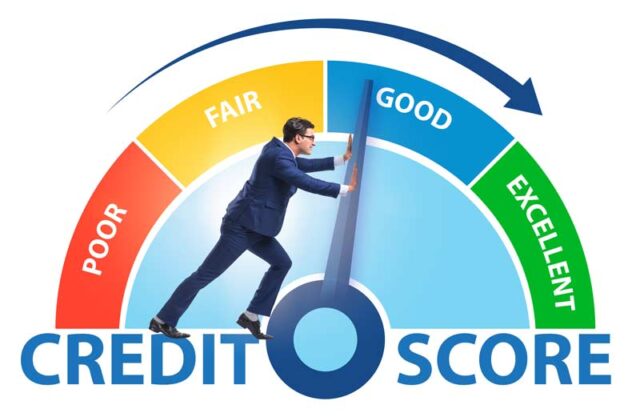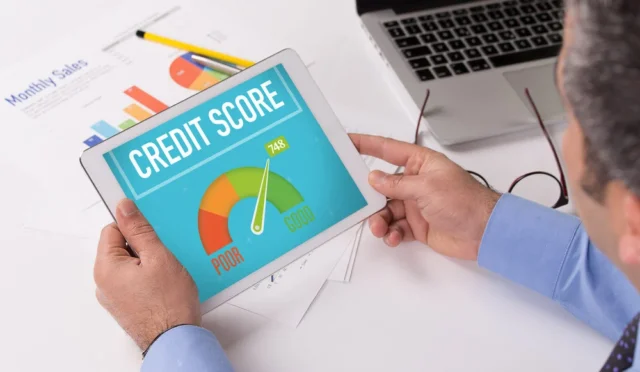
When it comes to some situations, having the greatest possible credit score is a wise choice. Maybe you’re about to take out a new mortgage loan. Or perhaps you’re trying to rebuild your credit and need a credit card to help you get back on track.
Of course, a good credit score is usually a nice thing.
You can speed up the procedure if you’re in a situation where you need to raise your score as soon as possible. You can also read this blog to learn more about credit scores.
How to Boost Your Credit Score in a Short Time
How long does it usually take to raise one’s credit? After following the advice in this article’s stages, your credit score will begin to rise within a few months, if not sooner. Let us now begin.
1. Find Out When Your Bank or Credit Union Reports Your Payments

Call your credit card company and find out when your account balance is reported to the three major credit reporting agencies. That day is usually the end of your billing cycle (the last day of the month). Remember that this isn’t the same as the “due date” listed on your invoice.
“Credit utilization ratio” is a term used to describe this. It’s the percentage of your available credit that you’ve already used. Every credit card you use has a specific ratio that you know.
Ideally, the overall and individual card ratio should be less than 30%. But here’s a little secret: Maintaining a credit usage ratio of less than 10% will help you raise your credit score more rapidly.
Paying off your debt on a monthly basis is ideal, but if your payment is received after the due date, your reported balance may be excessive. Because of this, your score is lowered because your ratio appears to be exaggerated.
As a result, you should pay your bill before the due date. That way, you’ll have a low or nil amount on your account. Thus, your utilization ratio is reduced, and you receive a bonus point.
2. Strategic Debt Reduction
Now that you know about usage ratios, we may move on to the next topic.
You have debts on multiple cards in the preceding scenario. A high ratio of 42% is found on Card A, while a low percentage of 10% is found on Card B.
When it comes to boosting your FICO score, you can do so by paying down your highest-interest credit card. If you pay down the balance on Card A to roughly $1,500, your new ratio for Card A is 25% (1,500/6,000 =.25), in the example above. It’s a lot better now!
3. Instead of paying once a month, pay twice a month

Let’s imagine your financial situation has deteriorated over the past few months. Perhaps you needed to replace your fridge or rebuild your deck (raising my hand). The utilization ratio (and your credit score) might be thrown out of whack if you use a credit card to pay for large purchases.
The one where you asked for the closure date of a particular store? Two weeks before the closing date, make a payment, and then immediately before the closing day, make another payment. A major expense must be paid off at the end of the month in order for this to work.
If you’re going to be carrying debt on your card, avoid using it for large purchases. Compound interest soon accumulates into a monstrous mountain of debt. Lending money for long periods of time should only be done with credit cards that have no interest on purchases for the first period of the loan. Even so, you must keep an eye on your credit card balance and ensure that you can pay off the payment before the intro period finishes.
4. Enhance the Capacity of Your Credit Cards
In the event that you frequently overpay, avoid this.
Increasing your credit limit on one or more cards is the goal. However, this only benefits you if you don’t make use of the freshly acquired credit.
It’s not a good idea to try this if you have a history of late payments or a score that’s on the decline. In the event of a financial emergency, the issuer may view your request for increased credit limits as a hint that you need the additional funds. I’ve really witnessed a reduction in credit limits as a result of this. You should wait until your financial condition is steady before requesting a raise in your salary or benefits.
If you’ve been an excellent client and your score is healthy, you should give this a shot.
It is as simple as calling your credit card company and requesting a higher credit limit be placed on your account. Begin by having an idea of how much money to ask for. In case they feel the need to haggle, set your price a little higher.
5. Mix and match

It dawned on me a few years ago that I didn’t have a diverse credit profile. I have a mortgage and credit cards with modest utilization levels, but I hadn’t paid off an installment loan in several decades.
The reduced interest rate on a car loan helped me increase my credit score by a few points. For the sake of my credit, I spent a year paying off the debt. My score first decreased, but after about six months, it began to rise again. Even while your credit mix only accounts for 10% of your FICO score, it can nevertheless have a significant impact on your overall creditworthiness.
Final Note
To improve your credit rating, there are two fundamental guidelines you must follow:
To begin, try to keep a low balance on your credit cards.
Pay your bills on time and in full, as well. Use one or more of the methods outlined above to boost your score a little bit.
Lastly, remember that you don’t need a balance to get a decent score. A slippery path to debt is in store for those who do that.







